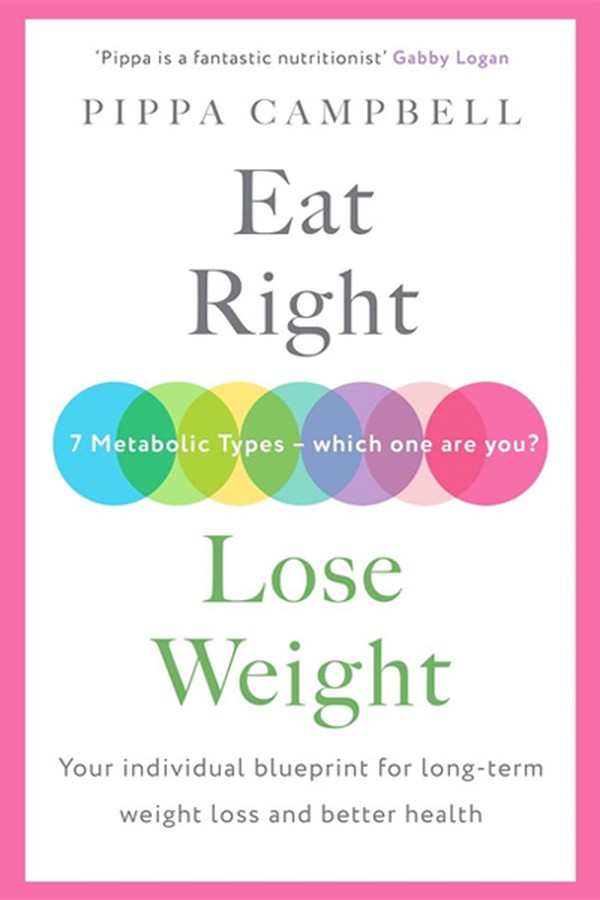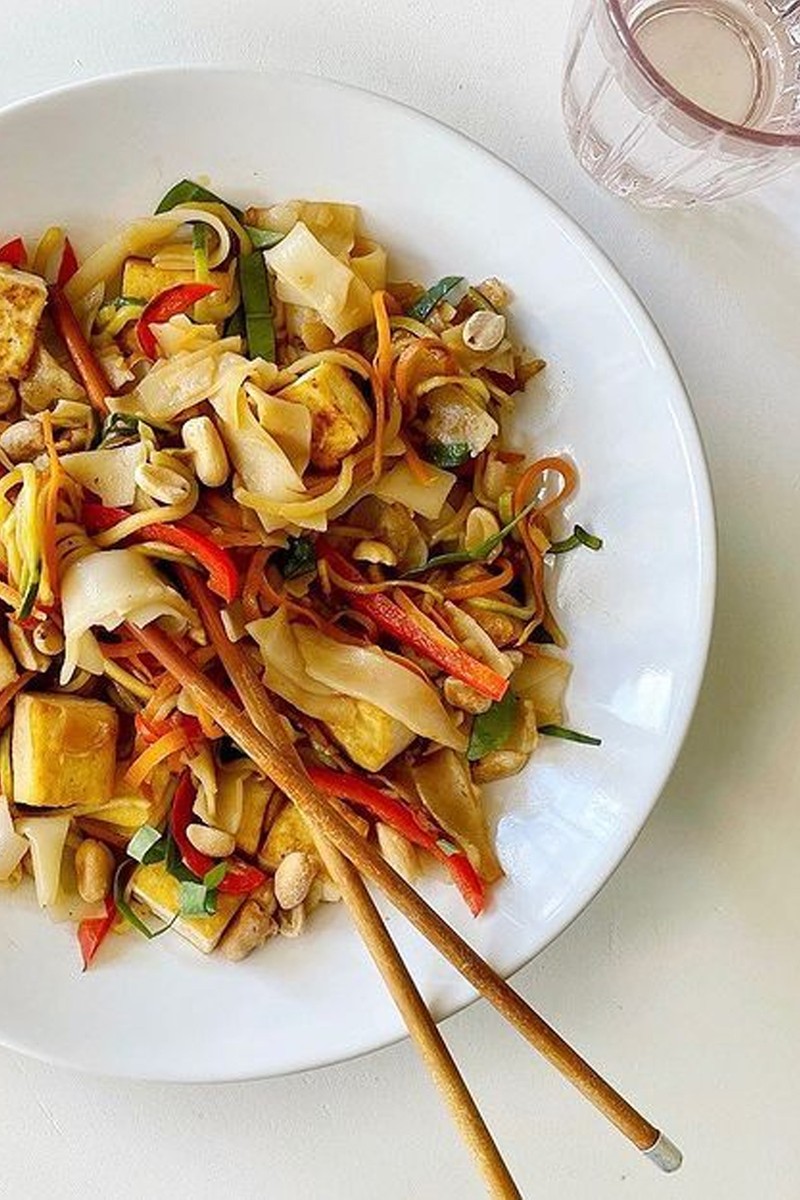

A Leading Weight Loss Expert Shares Her Golden Rules
Fad Diets Don’t Work
“Over the years at my clinic, I’ve seen fad diets come and go. There are several reasons women love fad diets. For starters, everyone wants a quick fix when it comes to weight loss. Secondly, fad diets are generally easy to understand and simple to follow, at least for a few days, anyway. Fad diets also make great tabloid headlines and, since they don’t last, there’s always room for a new one. However, following any diet for a time, even with exaggerated excitement, does not lead to long-term weight loss. Plus, the majority are a one-size-fits-all approach. We are so often told we simply need to eat fewer calories and burn more calories, but for many of us it’s not that simple. Nutrition and weight is much more nuanced.”
It’s About Bringing The Body Back Into Balance
“The overwhelming majority of clients tell me their number one goal is to lose weight and they are often surprised when, in our first consultation, we don’t talk much about food or calories. Instead, I’ll ask how you’re sleeping, about your health, your energy and cravings, and other symptoms you are experiencing. A lack of energy, brain fog, cravings for sweet, salty or fatty foods, insomnia, mood swings, digestive issues and anxiety are the most common symptoms I see among midlife women. Your body falls into one of seven metabolic types. Each one involves a body system that’s not working well, which is having an impact on your body’s ability to lose weight. Once your body’s systems are operating as they should, weight loss will happen.”
Knowing Your Story Is Key
“People are amazed when I tell them there’s a link between their symptoms and not being able to lose weight. Think about when your symptoms started and when you began to put on weight. Maybe you were put on a diet at a very young age? Or the pounds went on at puberty or when you went to university? You may not have even had to think about your weight until you had children or hit perimenopause. Then, suddenly, you found that you had fat around your middle that wouldn’t shift. Our metabolism changes in our forties: there’s not a single woman I see in her forties who can eat what she happily ate in her teens or twenties. Look out for symptoms, too, which often start before weight gain. Perhaps you began to get bloating or always had constipation? Or you often felt sluggish and tired? Or suffered from low moods? Or you started to get bad hangovers? Getting under the bonnet of your body is essential to understand your metabolic type and how you need to eat.”
Energy Slumps Suggest Imbalanced Insulin
“Three-quarters of the overweight people I see in clinic have issues with insulin. This is especially the case for women in their forties and fifties because, as oestrogen levels drop, insulin issues can worsen or crop up for the first time. If you struggle with energy highs and lows, this is a key sign your insulin needs balancing. When we eat a lot of carbs, we get a spike in blood sugar that then leads to an excess of insulin and fat storage. Insulin quickly brings blood sugar down, but this then leads to a blood sugar low. This is when we get energy slumps and cravings. Plus, as you become insulin resistant, it has a knock-on effect on leptin, the hormone that is supposed to kick in to tell you you’re full. This leaves ghrelin, the hunger hormone, the one that generates the desire to eat, in charge.”
Constant Stress Leads To Weight Gain
“One of the most common reasons for weight gain later in life is stress. It’s a time in life when women are dealing with the menopause, looking after a family, holding down a job and often have elderly or sick parents, which causes stress. They aren’t focusing on self-care, are drinking more alcohol, not sleeping well, not focusing on healthy food and not taking the time to sit down and chew their food properly. Cortisol – our main stress hormone – increases blood sugar in the bloodstream, makes you crave carbs, promotes visceral fat and has a knock-on effect on other hormones, including the sex hormones oestrogen and progesterone.”
An Underactive Thyroid Could Be To Blame
“Your thyroid is tiny but mighty. It’s in charge of the speed of your metabolism. If it’s not working well, it can not only make you feel low in energy but low in mood, too. Typical symptoms include feeling cold, puffiness around the face and eyes, and sometimes a low sex drive, as well as extreme fatigue. Like all body systems, your thyroid function is a complex balancing act of hormonal interactions, and can take its toll on fat burning and appetite. If you have thyroid symptoms, your GP may send you for a blood test, although what’s considered normal under NHS guidelines is not optimal. If you suspect your thyroid is out of balance and causing weight gain, get a comprehensive thyroid panel done.”
Getting Your Portions Right Matters
“Remember, the body prefers a bigger, filling meal, then a gap to digest, which allows it to go into fat-burning mode. At lunch and dinner, aim for 110-150g of protein to regulate blood sugar, reduce cravings and make muscle. Add to this a small amount of quality carbs – this could be 30-50g of wild rice or quinoa, 100g of sweet potato – and one tablespoon of fat, either for cooking or as a dressing or sauce. You should also aim for 110-150g of raw vegetables per meal, ideally made up of at least two different types of vegetables. For breakfast, follow these rules but with slightly smaller portions and minimal carbs – a couple of eggs with vegetables is ideal.”
My Five Habits For Better Health…
Start Each Meal With Two Bites Of Protein
“This is the key to appetite control. Why? As you begin chewing, what’s in your mouth sends a message to prime your digestive system for action. When you eat carbs first – including flour, bread, rice, pasta and grains as well as starchy vegetables like potatoes and carrots – it prompts the release of insulin, the hormone that tells your body to store fat, into your bloodstream. But protein doesn’t work this way. Instead, it helps you feel fuller faster, burns fat, increases energy levels and promotes hormonal health. The first two bites will ideally be poultry, meat, fish, eggs, tempeh or tofu.”
Leave Five Hours Between Meals
“Aim to leave four to five hours between breakfast and lunch, and between lunch and dinner. You should also finish eating all your food by 7pm, aiming to have three hours to digest before going to bed and a 12 to 14-hour break overnight. This also means no snacking, no juices or smoothies, or low-calorie drinks, nor milk in your tea or coffee. This will kick your fat-burning hormones into gear.”
Drink Two Litres A Day
“Hydration is key to all the body’s processes and most of us don’t drink enough water. Drinking enough helps weight loss because we often think we’re hungry when in fact we’re thirsty. It helps us feel fuller, too. It also helps flush through toxins and waste products, which is important for a well-functioning body. Aim for two litres per day, but more if it’s hot or you’ve exercised. Carry a bottle with you so you can refill on the go, drink a large glass every time you go into the kitchen, or try keeping a mug of herbal tea topped up with boiling water.”
Chew Well
“Chewing each mouthful of food up to 30 times may seem like a simple change, but I’ve seen it have powerful effects on my clients’ digestion. Chewing kickstarts stomach acid and digestive enzymes, as well as manually breaking down the food so it’s easier for the rest of your digestion to do its job of extracting the nutrients. If you don’t chew well, food will move more slowly through the digestive tract and can start to ferment, leading to wind and bloating, as well as constipation.”
Take The Vegetable Challenge
“Every day, try to eat four (or more) different vegetables and then, the next day, have four different ones. Eating a variety of plant foods supplies us with lots of different antioxidants and helps increase the diversity of the bacteria in our microbiome. These bacteria are key in digestion and the immune system but also affect metabolism and influence our weight.”
Eat Right, Lose Weight by Pippa Campbell is available now. For more information or to book an appointment with Pippa, visit PippaCampbellHealth.com and follow her on Instagram @PippaCampbell_Health

DISCLAIMER: Features published by SheerLuxe are not intended to treat, diagnose, cure or prevent any disease. Always seek the advice of your GP or another qualified healthcare provider for any questions you have regarding a medical condition, and before undertaking any diet, exercise or other health-related programme.
DISCLAIMER: We endeavour to always credit the correct original source of every image we use. If you think a credit may be incorrect, please contact us at info@sheerluxe.com.



